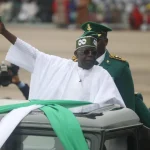In the tightly controlled political landscape of Cameroon, where dissent is often met with swift repression, the most potent challenge to the 41-year reign of 91-year-old President Paul Biya is not coming from a rival politician or a street protest. It is emanating from an unexpected source: his own daughter’s TikTok account. Brenda Biya, the 26-year-old daughter of the aging leader, has become an unlikely icon of rebellion, using social media to defy her father’s regime, champion progressive causes, and expose the vast generational chasm splitting the nation.
This is not merely a story of a rebellious presidential child; it is a microcosm of the struggle between old-guard authoritarianism and the restless, digitally-native youth of Africa. Brenda’s platform, filled with videos of her flaunting luxury Rolex watches, designer outfits, and a jet-setting lifestyle, stands in stark contrast to the reality for most of Cameroon’s 28 million people, over 60% of whom are under the age of 25. While her father presides over a country grappling with economic hardship and separatist conflicts, Brenda’s curated world is one of opulence and modern values, creating a public relations nightmare for the regime.
More Than Just Luxury: The Political Provocations
While the display of wealth is provocative enough, Brenda Biya has moved beyond materialism into direct political and social defiance. Her most seismic act was publicly posting a photo of herself with another woman, accompanied by a caption and emojis widely interpreted as announcing she is in a same-sex relationship. In a country where homosexual acts are criminalized and punishable by up to five years in prison, this was not just a personal statement; it was a direct confrontation with her father’s government and the conservative laws it upholds.
This act of defiance has multiple, powerful layers:
-
Challenging Archaic Laws: By aligning herself with the LGBTQ+ community, Brenda is spotlighting a deeply unpopular and oppressive law, forcing a national conversation from within the president’s own household.
-
Claiming Autonomy: In a political system built on patriarchal control, her actions are a powerful assertion of individual identity and autonomy over her father’s political image.
-
Speaking to the Youth: Her stance resonates powerfully with a young, increasingly progressive African youth who are frustrated with the conservative social policies of their elders. She has become, by accident or design, a symbol of a new, more open Africa.
The Regime’s Dilemma: How Do You Silence a Princess?
The government’s response has been a study in confusion, revealing its inability to handle a crisis of this nature.
-
The Silence: The official government channels have maintained a deafening silence, refusing to acknowledge or comment on Brenda’s activities. This traditional strategy of ignoring dissent is ineffective against the viral, always-on nature of social media.
-
The Backlash: Pro-government media and sycophants have launched attacks, labeling her a “spoiled child” and attempting to discredit her. However, this only amplifies her message and reinforces the image of an out-of-touch old guard attacking a vibrant young woman.
-
The Digital Onslaught: Following her LGBTQ+ post, Brenda’s accounts were reportedly mass-reported, leading to temporary suspensions—a tactic many suspect was orchestrated by regime loyalists. This digital harassment backfired, painting her as a victim of censorship and further solidifying her rebel status.
Analysis: A Symptom of a Failing System
Brenda Biya’s TikTok rebellion is significant because it exposes the core vulnerabilities of long-standing regimes like her father’s:
-
The Illusion of Unity: It shatters the carefully cultivated image of a unified first family and a stable, monolithic government, revealing deep internal fractures and personal conflicts.
-
The Weaponization of “Soft Power”: She has demonstrated that in the 21st century, a TikTok account can be as disruptive as a political manifesto. Cultural influence, personal branding, and social media clout are new forms of power that old regimes do not know how to counter.
-
The Inevitable Generational Clash: President Biya, at 91, represents a generation of leaders who came to power in a different era. His daughter is a product of globalization and the digital age. Their conflict is a dramatic preview of the inevitable political and cultural reckoning that awaits many African nations.
Conclusion: A Nation’s Future, Filtered Through a Phone Screen
Brenda Biya may not be a traditional political figure, but her influence is undeniable. She is a constant, living reminder of the excesses of power, the yearning for change among the youth, and the glaring contradictions within the Cameroonian state. Whether she is a calculated activist or simply a young woman living her truth, the effect is the same: she has held up a mirror to her father’s regime, and the reflection is damning. The battle for Cameroon’s soul is now being waged not just in the Anglophone regions or the halls of power in Yaoundé, but on the smartphone screens of its citizens, and the general’s daughter is leading the charge.








